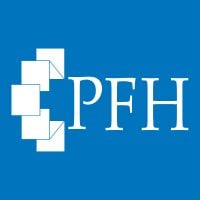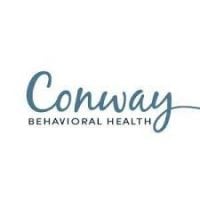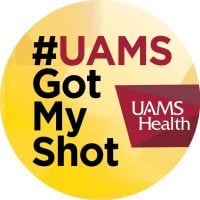Georgetown Wastewater
Drug Rehab Center in West Point, Arkansas
- Substance Abuse
- Drug Addiction
- Alcoholism
Georgetown Wastewater is a comprehensive addiction and substance abuse treatment facility in West Point, Arkansas, offering a range of services tailored to each individual's needs and accredited by various organizations.
About Georgetown Wastewater in Arkansas
Georgetown Wastewater is a premiere medical, clinical and residential treatment facility located in West Point, Arkansas. The facility offers a multi-faceted approach to addressing substance abuse and other addictions, with a wide range of services, such as addiction assessment, individual therapy, family therapy, group therapy, and more. In addition, they provide comprehensive medical services, including detoxification and mental health services. Georgetown Wastewater also offers follow-up care as well as relapse prevention programs.
At Georgetown Wastewater, addiction and substance abuse treatments are tailored to the individual's needs, be it chemical dependency, eating disorders, trauma, or other mental health issues. Their certified addiction counselors provide evidence-based treatment methods in a safe and respectful environment. The facility also has a variety of ancillary services, such as vocational training, family education, and support groups.
Georgetown Wastewater has received various awards and accreditations for their commitment to excellence in addiction treatment. For example, they are accredited by the Joint Commission and the Commission on Accreditation of Rehabilitation Facilities (CARF), and they have also received Arkansas State recognition for their work in addiction treatment. Furthermore, the facility is a member of the National Association of Addiction Treatment Providers (NAATP).
Genders
Ages
Modality
Additional
Conditions and Issues Treated
It’s not easy getting sober on one’s own, or even going to rehab and escaping the grasp of addiction by oneself. Substance abuse treatment gives addicts a place to stay sober while learning what it takes to quit for good. They will learn from others about what works and what doesn’t work with remaining drug-free.
Treatment centers such as Georgetown Wastewater focus on the needs of individual addicts to heal them. There is a combination of physical and mental therapies that treat the root cause of the addiction, whether it be family problems, stress, or past traumatic events.
The final benefit of substance abuse treatment is introducing new people who can help in your recovery after you leave Georgetown Wastewater. Through group therapy sessions with other addicts and attending support meetings once a day, a person will learn how to interact with others and cope with cravings. This is a chance for you to rebuild your social circle healthily after you leave treatment.
Levels of Care Offered
This center offers a variety of custom treatment tailored to individual recovery. Currently available are Aftercare Support, Drug Rehab, Outpatient, with additional therapies available as listed below.
Outpatient treatment is considered the lower intensity level of addiction treatment. It’s ideal for early phase addiction or lower intensity addictions. It may include weekly sessions instead of daily. It may include weekly sessions instead of daily. Peer group support, 12-step programs, and individual counseling may still be involved but at a lesser frequency than an intensive outpatient program. It is a good choice for someone who doesn’t need to go through a medically supervised detox and who has a supportive home environment. It requires motivation and dedication to commit to the program without constant monitoring.
Aftercare support should take place after outpatient treatment has ended. There are a few different types of aftercare support that patients can seek. These include 12 Step, Self-help groups (AA, NA), Therapeutic communities, Long-term, structured sober living arrangements, and Halfway houses (residential treatment centers).
Therapies & Programs
Individual therapy involves one-on-one sessions between the patient and therapist. It provides patients with a safe environment to openly discuss personal and sensitive issues with the therapist. They find the therapist as someone they can trust. Individual therapy aims to identify the core issues that would have led the patient to substance abuse and address them effectively. The therapist can develop patient-specific customized solutions through individual therapy, which aids speedier recovery.
Couples therapy works with clients and significant others in a professional capacity to improve relationship dynamics. This can be helpful for addicts who are trying to marry the idea of recovery into their work, family, social lives – any aspect that has to do with relationships.
Through counseling sessions, addicts will have an opportunity to talk about their addiction with professional partners. These partners can offer feedback and advice on how to get sober while keeping healthy relationships intact. A good couples therapist will help addicts understand their part in an unhealthy relationship dynamic or find ways to deal with anger or resentment from significant others outside of the home.
Family therapy is a group problem-solving that aims to improve communication and relationships between the addict, their family, and sometimes friends. The main goal of family therapy for drug addiction is to create an environment where communication can occur without judgment, hostility, or blame. The therapist is with the family as they learn to communicate differently, especially with the addict when s/he is using. The family can learn to reduce their enabling behavior or rally together and support each other during tough times.
An addict’s family can play a vital part in helping them to avoid relapse because they can spot the warning signs and help them get back on track before it becomes too much of a problem. Family therapy is one of the most effective ways to help addicts stay on the path to long-term sobriety. When a drug addict decides that they want to try and get sober, it takes the support of every person they love to succeed. It can be incredibly difficult for loved ones to watch an addict go through the pain and suffering of withdrawal, but by being there with them and supporting them, they can help to make sure that the addiction never returns.
Groups typically involve meetings with other recovering addicts who can relate to one another’s experiences. They might meet in person or online and typically focus on the process of staying sober rather than overcoming a specific addiction.
In these groups managed by Georgetown Wastewater, addicts can build a sense of community and develop strong emotional connections with others who understand what they are going through. These beneficial relationships can help addicts overcome their cravings and prevent relapse at any point during the recovery process.
Since addiction is a chronic physical and mental illness, addicts need to learn as many life skills as possible. Many drug treatment centers offer life skills activities as part of their addiction recovery programs. Examples include cooking classes, employment training, resume writing seminars, parenting classes, and computer training. Life skills activities help addicts find employment, take care of their families, and give back to the community.
Payment Options Accepted
For specific insurance or payment methods please contact us.
Additional Details
Specifics, location, and helpful extra information.
West Point, Arkansas 72178 Phone Number(501) 742-3774 Meta DetailsUpdated November 25, 2023
Staff Verified
Georgetown Wastewater Patient Reviews
There are no reviews yet. Be the first one to write one.
West Point, Arkansas Addiction Information
Arkansas has one of the highest rates of substance abuse and addiction in the nation for drug overdoses. Methamphetamines and prescription opioids are by far the most widely abused drugs in the state. Despite the high rates, Arkansas ranked only 25th in the for drug overdose deaths in 2013.
Treatment in Nearby Cities
- Stuttgart, AR (49.0 mi.)
- Lonoke, AR (33.5 mi.)
- Hope, AR (155.2 mi.)
- De Queen, AR (175.1 mi.)
- Earle, AR (64.8 mi.)
Centers near Georgetown Wastewater




The facility name, logo and brand are the property and registered trademarks of Georgetown Wastewater, and are being used for identification and informational purposes only. Use of these names, logos and brands shall not imply endorsement. RehabNow.org is not affiliated with or sponsored by Georgetown Wastewater.




